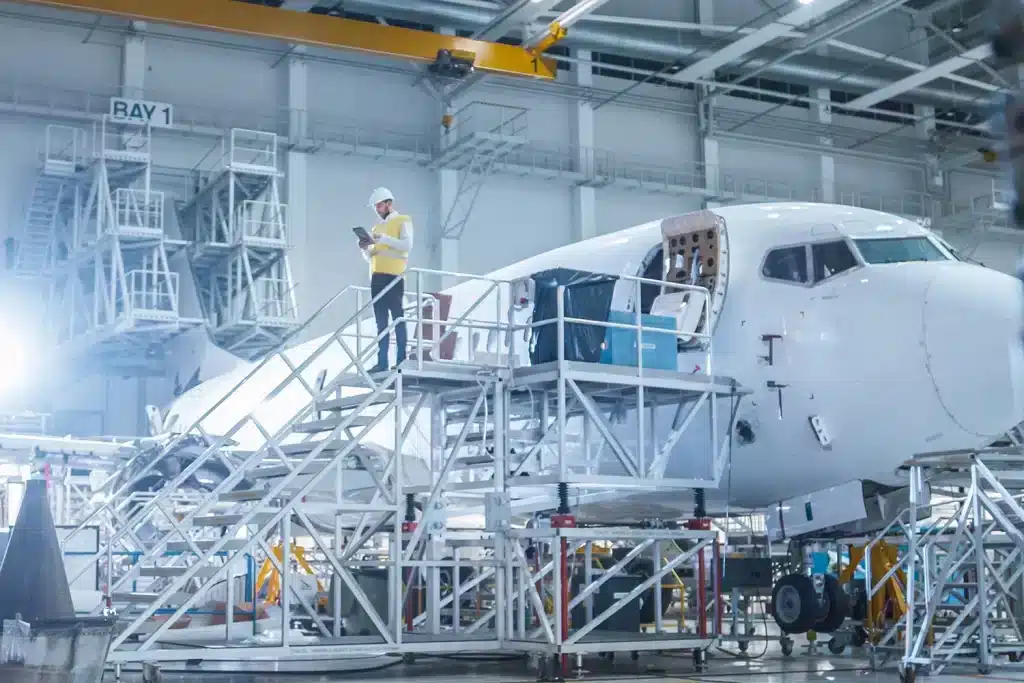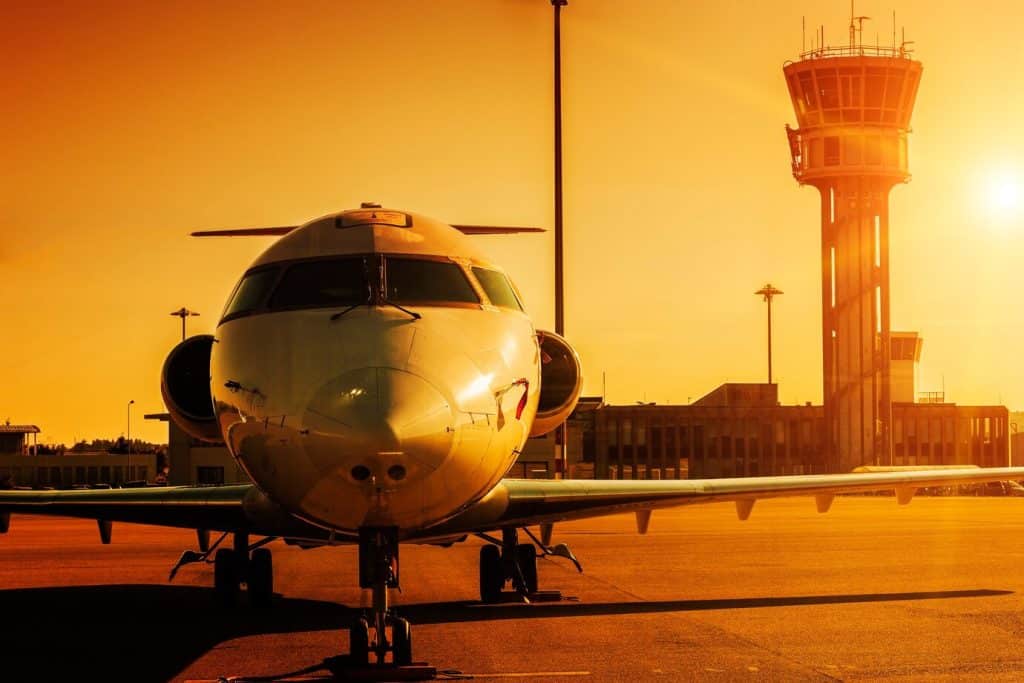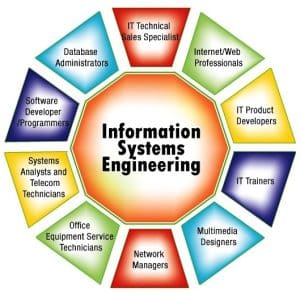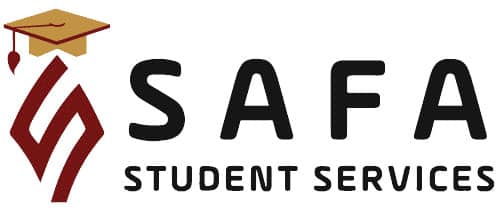Aviation Engineering
Specialty
Engineering
Degree
Bachelor's
Master
PhD
Language
Turki, English
Duration
4 years
Start Form
4000$
جدول المحتويات
Overview of the Program
The Aviation engineering program is considered one of the prestigious and constantly in-demand fields of study in the global job market. It offers rewarding career opportunities in various aviation sectors. That’s why students prefer to study aerospace engineering programs abroad, especially to ensure they receive an excellent academic level that helps them efficiently pursue their professional careers after graduation. Turkey is renowned for its fame and competence in offering this specialization through many accredited and globally recognized universities. In this article, we will delve deeper into the aerospace engineering program. Follow along.
What is Aerospace Engineering?
Aviation engineering is one of the most important branches of engineering. It is an academic program that focuses on studying, designing, developing, and maintaining aircraft. The program also involves studying and applying scientific and engineering principles to aircraft design and analyzing their behavior in the air. Students learn a wide range of technical and scientific skills related to the aerospace industry. This includes studying and designing various aerospace vehicles and equipment, such as rockets, helicopters, satellites, and some spacecraft. The program’s curriculum is based on key areas such as manufacturing, design, improvement, development, and maintenance. Additionally, it includes studying how to enhance the performance efficiency of aircraft and other aerial vehicles.

Aviation engineering is divided into two subfields: aeronautical engineering (working with airplanes, jets, helicopters, and occasionally submarines) and astronautical engineering (designing rockets and spacecraft used in space exploration). Therefore, studying aerospace engineering requires a solid understanding of physics, mathematics, and engineering principles to comprehend how aircraft and spacecraft move and stay in the air, as well as how to maintain them and improve their efficiency.
Studying Aerospace Engineering in Turkey
Aviation engineering in Turkey is a significant academic program that targets international students from all around the world. This is due to the excellence of Turkish universities in terms of academic and professional levels, as well as their classification among the best international universities offering aerospace engineering programs. Turkish universities provide the best equipment, laboratories, and factories, along with highly qualified teaching staff and faculty members, to ensure the delivery of outstanding academic standards and practical training. This is particularly crucial for this specific field.
Moreover, Turkey, in general, is one of the most attractive countries for international students to study and live in because:
- It offers diverse academic programs in various medical, engineering, and social disciplines that students seek to study abroad.
- All Turkish universities are accredited by the Higher Education Council of Turkey, and many universities have obtained additional international accreditations in various fields and academic programs.
- The language of instruction in Turkey is English, alongside the Turkish language, which makes it easier for international students to study without language barriers.
- The cost of studying in Turkey is low for all disciplines and is characterized by reasonable prices compared to different European universities.
- The cost of living and accommodation in Turkey is low, and international students can easily manage their living expenses.
- Some universities in Turkey offer numerous scholarships for outstanding students, which cover tuition fees, accommodation, healthcare, and even travel expenses.
- While living and studying in Turkey, students experience a crossroads between European and Asian cultures.
The Core Subjects Taught in Aviation Engineering
The specific courses taught during a bachelor’s degree in aerospace engineering may vary from university to university and from program to program. However, there are generally fundamental subjects that students are required to study throughout their years of study. Some of the most important subjects include:
- Physics
- Aircraft Design
- Aircraft Propulsion
- Automatic Control
- Transportation Engineering
- Marine Engineering
- Automotive Engineering
- Mechatronics
- Aerospace Mechanics
- Experimental Engineering
- Aerodynamics
- Aircraft Dynamics
- Fluid Dynamics
- Aircraft Control
- Linear Vibrations
- Engineering Mathematics
- Mechanical Principles
- Aviation Engineering Systems
- Stability and Control
- Thermodynamics
- Mechanics and Structures
- Solid Mechanics and Structural Engineering
- Gas and Fluid Dynamics
- Computer-Aided Design
- Fundamentals of Electrical Engineering
- Aircraft and Spacecraft Structures
- Solid Mechanics and Space Structures
- Design of Various Spacecraft

What Students Learn in an Aerospace Engineering Program
During their studies in aerospace engineering at Turkish universities, students acquire multiple skills that help them understand and apply engineering principles in the aerospace field. They learn about aircraft design and construction principles, aerodynamics, statics and dynamics related to aviation, power systems and structures used in aircraft, engine technology and propulsion systems, control systems and aviation navigation, and materials science used in aircraft manufacturing.
This helps develop technical skills in students, ranging from analytical abilities, problem-solving capabilities, technical expertise, innovative thinking, attention to detail, project management, and even effective communication methods. All of these skills are essential for aerospace engineers after graduation to collaborate with their teams and with specialists from other related fields to solve complex mechanical and aerodynamic challenges.
Duration of Aviation Engineering Program in Turkey
Turkey holds an advanced position in the aviation industry and has prestigious companies in this field. The duration of studying aerospace engineering in Turkey is typically 4 years, during which students have excellent opportunities for training and working in the aviation industry. Turkish universities focus on developing high-level aerospace engineering programs and provide an advanced educational environment equipped with the latest technologies and equipment used in the aerospace industry. Students also have the opportunity to benefit from practical training and collaboration with local aircraft companies and manufacturers.
You can Register with Safa to study in Turkey now and get your acceptance easily. Safa your Friendly Companion in your Education 🎓 WhatsApp
Important Turkish Universities for Studying Aerospace Engineering
Studying Aviation Engineering at Istanbul Technical University
One of the top universities in Turkey for studying Aviation engineering is Istanbul Technical University (ITU). ITU is a leading educational institution specializing in engineering and technology in Turkey. It offers a comprehensive and specialized aerospace program that covers all aspects of design, analysis, and technology required by the aerospace industry. The subjects are taught by qualified and experienced faculty, ensuring high-quality education and practical application knowledge.
Additionally, the university provides advanced infrastructure and high-tech facilities, including specialized laboratories for testing and analysis, an advanced research center for developing new technologies in aerospace, and workshops equipped with the latest equipment for aircraft design and assembly.
Moreover, there are opportunities for students to interact and collaborate with the local and international aerospace industry through workshops, seminars, and lectures organized by industry experts and international engineers. This allows students to have direct communication and gain knowledge from experienced academics and professionals.
Benefits of Studying Aviation Engineering in Turkey
- Turkey holds an advanced position in the aerospace industry and has prestigious companies in this field, providing excellent opportunities for students to train and work during their studies.
- Turkish universities focus on developing advanced aerospace engineering programs and provide an advanced educational environment equipped with the latest technologies and equipment used in the aerospace industry.
- Students benefit from the opportunity for practical training and collaboration with local aircraft companies and manufacturers in Turkey.
- There are ample job opportunities after graduation, as the aviation industry is a vital and developing sector in Turkey, offering rewarding careers for specialized engineers in this field.
- Students can benefit from the extensive network of aerospace industry experts in Turkey, communicate with them, and expand their knowledge and experiences.
- Turkey has a large number of prestigious public and private universities that offer aerospace engineering programs with high efficiency.
- Multiple language options are available for study, allowing students to choose between English or Turkish language based on their preference.
- There are numerous Turkish universities offering the aerospace engineering program, enabling students to choose their preferred university based on location, tuition fees, and the courses offered during the program.
The possibility of obtaining training opportunities during studies provides students with valuable life and professional experiences. - Turkey provides a safe and comfortable environment for studying and living for international students.
Costs of Studying Aviation Engineering at Turkish Universities
Tuition fees for studying Aviation engineering at Turkish universities vary. Government universities have lower costs compared to private universities. However, overall, studying in Turkey is considered low-cost and affordable compared to tuition fees in universities in other countries.
Opportunities
The Most Important Job Opportunities for Studying Aerospace Engineering
After completing a degree in aerospace engineering, graduates acquire the skills and knowledge that qualify them to work in the aerospace industry and provide engineering consultations related to aircraft manufacturing and design. This includes structural design, mechanical safety, alternative fuel types, and environmental challenges that must be taken into consideration when developing aircraft and spacecraft. A career in aerospace engineering will also allow you to work on the latest trends and technologies, such as 3D printing, fuel-efficient aircraft, and structural health monitoring.
Graduates of Aviation engineering can find diverse job opportunities in civil and military aviation, airlines, and other related fields. The most important job opportunities include:
- Aircraft Maintenance Engineer
- Aircraft Design Engineer
- Aerospace Systems Engineer
- Operations Technician
- tructural Engineer
- Avionics Engineer
- Spacecraft Developer
- Space Scientist
- Manufacturing Engineer
- Work in research centers to develop the aviation sector.
Specialty Price for Aviation Engineering in Turkish Universities
| # | List of universities | Turkish | English | Enroll |
|---|---|---|---|---|
|
1 |
Istanbul Gelisim University |
4000$ |
6000$ |
Related Programs
Follow the latest programs

Industrial product design
Industrial Product Design is an engineering field focused on developing products from the initial concept to actual production. This discipline...
See More
Information Systems and Technology
The rapid digital advancement in our world has made studying Information Systems and Technology in Turkey an unparalleled opportunity. As...
See More
Information Systems Engineering
Studying Information Systems Engineering in Turkey is one of the best choices for students who aspire to pursue this field...
See More
Energy systems engineering
We all believe that we will always have energy anywhere in the world and at any time and in unlimited...
See More
Medical equipment engineering
The field of medical equipment engineering specifically specializing in medical equipment, combines the fields of medicine and engineering. It is...
See More
Marine Engineering
If you have a passion for ships, their operation, and control, you can choose to study marine engineering. In this...
See More

